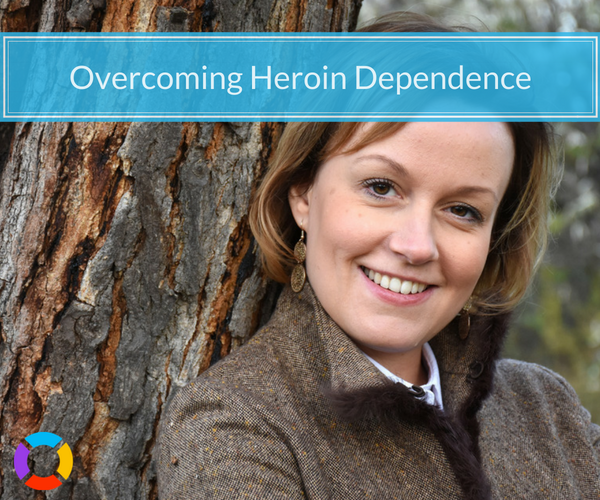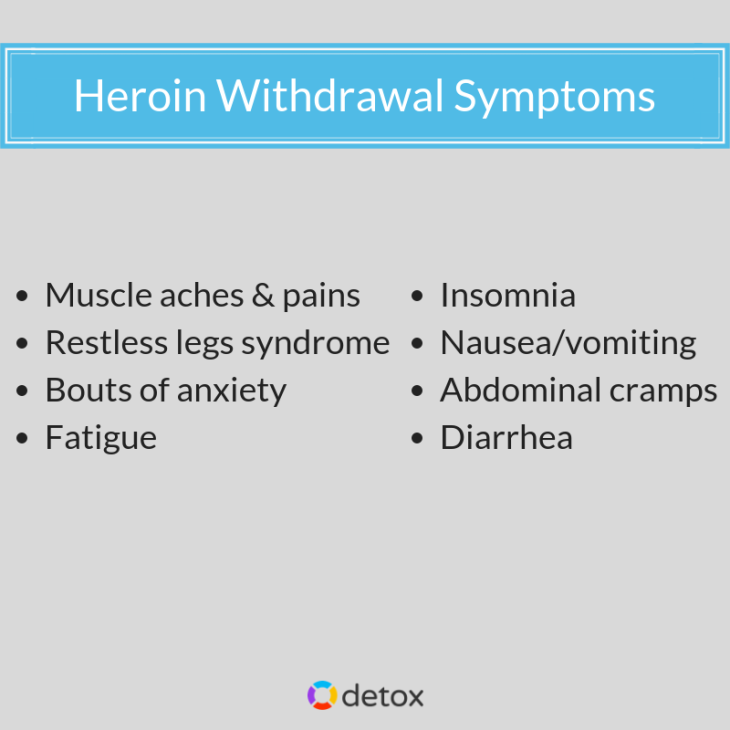Heroin Detox & Rehab: Safe, Effective Treatment for Heroin Addiction

Seeking illicit heroin is a symptom of addiction. Stopping can be equally hard, as the withdrawal symptoms often drive people to continue using to avoid the sickness they experience when trying to detox from heroin.
Heroin is a highly addictive opioid that’s illegally produced and sold. It’s derived from morphine, which is used in pain management by medical professionals. The addictive nature of opioid pain medications like morphine causes some people to seek out heroin when their prescription pain medication is no longer available.
However, recovery from opioid addiction is possible. Many facilities also offer psychotherapy, behavior intervention and peer support to help people with heroin addiction safely stabilize in detox and go on to live drug free lives.
You don’t need to quit heroin alone. Call today for help.
What is Heroin and Why is It So Addictive?
Heroin is made from morphine, a natural substance extracted from the seed of an opium poppy plant. Most poppies are grown in Southeast or Southwest Asia and South America. Common street names are China White, Smack, and Horse.
There are different kinds of heroin. It can either be white, brown or black in color. Heroin becomes more potent with a higher purity and correspondingly more addictive.
White heroin is that which is processed in pure powder form and then mixed with common household additives like sugar or powdered milk. Black Tar refers to heroin cooked down into a residue and becomes sticky.
Heroin is ingested by smoking, intravenously through a needle, and snorted or sniffed up the nose.
These methods create a rush of euphoria and, as the suppression of the central nervous system occurs, people either slip into a state of extreme sleepiness known as nodding off or a state of numb wakefulness demonstrated by slow motor responses and speech, also called a zombie high.
People become addicted to heroin because the brain receptors related to pain become suppressed while receptors associated with pleasure become stimulated. This causes the brain to want more pleasure and less pain.
Pain, however, is a valuable function of the nervous system that serves as a warning of pending damage. When shooting up with heroin, you won’t have that internal red flag.
There is limited research on exactly what happens in the brain when heroin is being used. Researchers know there are significant structural, functional and cognitive impairments associated with chronic heroin use.
Degeneration of neural pathways occurs, causing significant long term complications. Reports of diseases transmitted through shared needles such as heart infections, hepatitis and lung problems are also substantiated in medical research. The greatest danger to a heroin addict is the high mortality rate of overdoses.
Signs and Symptoms of Heroin Use and Addiction
Indicators of heroin intoxication are as follows:
- Drowsiness
- Respiratory depression
- Constricted pupils with the diameter of pin pricks
- Nausea, sometimes in dry heaves
- Flushing of the skin
- Dry mouth
- Heavy extremities
- Slow speech
- Lack of responsiveness
Signs of heroin addiction include the following:
- Missing work or other obligations
- Financial difficulties
- Legal problems
- Lack of hygiene or any kind of self-care
- Extreme emotional swings between highs and lows
- Lack of motivation for any life tasks
- Weight loss
- Blank expressions
- Loss of interest in sex
Overdose and death can occur at first usage. However, overdose also occurs when chronic use requires higher dosages as tolerance develops. Overdose occurs when the amount of a substance overwhelms the body’s systems, often causing respiratory failure.
These are common symptoms of overdose:
- Low body temperature
- Blue lips
- Not breathing
- Cold, clammy skin
- Convulsions
- Coma
Overdose can be reversed with naloxone. The common brand name of naloxone is Narcan. Narcan can reverse the effects of heroin by blocking opioid receptors in the brain.
Narcan is readily available over the counter at local pharmacies or through state and local health agencies. The distribution of Narcan has saved many lives and has made a dent in the epidemic of overdoses in American society.
Heroin Withdrawal and Detox
Heroin remains in the system for up to three days or more if used over a long period of time. As you can imagine, it takes time for your body to rid itself of any remaining heroin. Generally, withdrawal symptoms begin within the first 12 hours after last use.

Addicted heroin users going through withdrawal feel pain, stomach cramps, and muscle aches, making heroin detox extremely difficult. Flu-like symptoms are common, and many struggle to keep food down.
Diarrhea, nausea and vomiting aren’t unusual. The greatest danger during detox is possible dehydration from sweating and diarrhea. Chills, runny nose, and sleep disorders are also frequently reported.
Detox from heroin isn’t usually life threatening, but the sickness from withdrawal is so uncomfortable many people relapse to avoid the symptoms. Also, the cravings from opioid addiction are reportedly worse than many other drugs and difficult to manage.
Post Acute Withdrawal Syndrome (PAWS)
PAWS are psychological and mood-related symptoms that recur for months or even years after a person has experienced the initial withdrawal.
These symptoms can be a contributor to relapse. While acute withdrawal occurs in the first few days after final ingestion of a drug, the PAWS occur as the brain begins to recalibrate the chemical imbalances created by substance use. These are more psychological and emotional symptoms that may be harder to manage long term.
Symptoms are often induced by stress or other triggers after a person has experienced a period of recovery.
Untreated heroin withdrawal often results in relapse. Call today and get help finding the right treatment program.
They include memory problems, foggy thinking, cravings, irritability, sleep disorders, fatigue, anxiety, depression and lack of motivation with extreme mood swings. Research indicates that it may take up to two years for the brain to fully recalibrate chemical balances.
PAWS is often misdiagnosed and treated as bipolar disorder, personality disorders and other mental health issues. However, honest and clear communication with a treatment provider can assist in finding the correct treatment plan.
How to Detox from Heroin Safely
While detoxing off opioids such as heroin is not considered life threatening, it is a difficult process that often leads people back to using to avoid the discomfort.
Safe detox is featured in centers that offer buprenorphine/naloxone (Suboxone) tapers, medications for withdrawal symptoms, and 24/7 supervision to avoid dehydration. They also offer extended residential inpatient care for 28 to 45 days that include therapy and life skill building for long term sobriety.
Methadone treatment centers also offer a safer form of opioid to allow people to taper and detox slowly. These centers don’t offer 24/7 supervision.
They also offer limited counseling sessions to assist with the building of skills for sobriety. These centers offer long term processes while inpatient detox is shorter in duration but more intense in counseling services.
Going “cold turkey” with detox is usually dangerous and unsuccessful. Dehydration is the greatest concern as the body loses a lot of fluid through sweating, vomiting and diarrhea. Seeking a medical detox is safer as nutrition, hydration, and medications are provided to allow a person to comfortably detox without complications.
Medical Detox for Heroin: What to Expect
Treatment provided on a step down basis is more successful than short term, limited exposure to support. For heroin addiction, the longer a person stays in a supportive treatment setting, the higher the success of remaining abstinence long term.
Treatment begins with the detox process and generally moves into an inpatient residential setting for 28 to 45 days.
These centers provide immediate day treatment which means clients can receive mental health assessments and begin psychotherapy prior to their transitioning out of detox and into longer-term treatment, often a 28 to 30 day residential program,
This comprehensive approach to detox helps clients develop the physiological, emotional and psychological capacity to live without the drug in their system.
Sessions are generally provided in individual and group settings. Psychoeducational classes teach early recovery skills. Peer support, medical professionals, therapists and other providers can guide lifestyle change.
MAT, or medication-assisted treatment, is recommended following detox as long-term treatment of opioid addiction. The use of various types of medications like long-term Suboxone aids in making people more comfortable and able to abstain from illicit opioid use.
Heroin Rehab Options: Inpatient vs Outpatient
After inpatient treatment, an intensive outpatient program (IOP) is often recommended. These programs last for around 10-12 weeks, meet three times a week for three hours at a time in group settings.
Here a person learns with other recovering clients continued lifestyle changes and peer support. The outpatient process allows clients to return to work or daily activities while still experiencing support and continuing counseling.
After IOP, outpatient aftercare is advised by most treatment providers to continue meeting as needed for support and addressing additional issues that may be at the root of substance use disorders.
Issues like relationship management, trauma recovery and childhood abuse can all be addressed as counseling progresses. Continued attendance in a peer support community like AA or Celebrate Recovery is recommended in an ongoing aftercare program.
Don’t wait to get help with your heroin addiction. Call now.
Behavioral Therapy and Mental Health Support
Some programs are gender specific, faith based, or specific to other LGBTQ+ populations. These programs create a community of support and address specific interests and issues surrounding identity by creating a sense of belonging.
The previous group of addiction with dealers and other users must be replaced with a new community of persons with the same goals in recovery. Recovery is an entire life change.
When to Get Help with a Heroin Addiction
Heroin and other opioids are considered the hardest substance to detox from and remain in recovery. This is because of the changes in the brain that occur through continued use. Symptoms of opioid addiction can begin to develop as soon as in two weeks of continued use.
Treatment centers are readily available and can be found at these websites:
- US Department of Health and Human Services
- Substance Abuse and Mental Health Services Administration
- A 24-hour suicide support line is 988 and in the event of an overdose, dial 911.
When researching treatment centers, look for facilities that are local, accept your insurance or are subsidized for free treatment to those who can’t pay. Certified community behavioral health centers are designated for those who can’t pay for treatment and also accept Medicare, Medicaid and all major insurance carriers.
Admissions staff can coach clients on what kind of insurance they accept, if there are beds available, transportation needs, and what to bring to treatment.
Don’t hesitate to reach out for help if you have concerns about a loved one you suspect is addicted to heroin, or if you are experiencing addiction yourself. Help is available. Recovery is possible. Caring professionals are waiting to help.
Frequently Asked Questions About Heroin Detox & Rehab
It generally takes 72 hours for heroin to completely leave the system. Most inpatient detox programs last about a week. However, PAWS can last long after the drug leaves the body.
Yes. Heroin addiction treatment isn’t life threatening for most people, unlike detox from alcohol or benzodiazepines. However, the success rate of abstaining from heroin drops significantly for those who go cold turkey.
Heroin withdrawal is similar to having a really bad case of the flu. It can lead to dehydration from vomiting and diarrhea. Headaches, body aches, muscle spasms and other flu-like symptoms are common.
Most opioids can begin to cause dependence within 14 days of consistent use, depending on dosage and how often they’re used during that initial period. Dependency often occurs sooner with more frequent use.
Medications are often recommended to reduce discomfort of detox symptoms. Medical monitoring is recommended to ensure that you don’t have complications of withdrawal, such as severe dehydration.
Statistics listed by the National Institute on Drug Abuse (NIDA) indicate that up to 60% of persons who use heroin relapse within the first year of recovery. Up to 80% relapse within at least once during their recovery.
Heroin and other opioids are highly addictive because they convince the brain that pleasure is better than pain. By blocking pain receptors, the pleasure receptors become over stimulated and release more dopamine.
Check out Detox.com to find the best heroin rehab in your area. It’s a decision that could change your life. Call now. 800-996-6135
Detox.com offers a directory of heroin detox centers listed across the country. You can search by city and state to locate facilities near you.
Get Help Today: Start Your Recovery From Heroin Addiction
The high mortality rates demonstrate the danger of addiction. People have even died using heroin for the first time. Experimentation with heroin can be just as fatal as using over a period of time.
However, hope is available through the many treatment facilities and options available. New laws require the provision of services to those with limited funds. Information on these free services is available through providers.
Addictions kill people every day. Recovery happens everyday. Hope is found by choosing to seek help, attending a recovery program, and finding support with others who’ve succeeded in changing to a healthy lifestyle.


